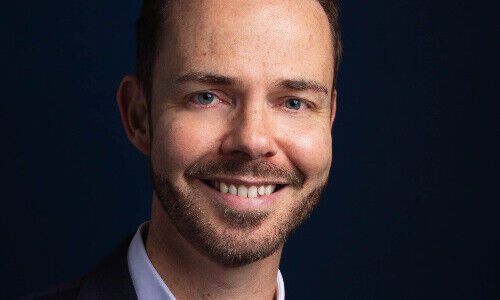David Ellis: «Five Résumé Tips for People Over 50»
Layoffs, inflation, and the high cost of living are causing more older workers to look for jobs. Here are five ways to craft an age-friendly résumé, David Ellis writes in an article on finews.first.
finews.first is a forum for authors to comment on economic and financial topics.
Age can be both positive and negative, of course. On the one hand, employers are looking for experienced candidates with a broad skill set. On the other hand, despite laws against it, age bias is still a real issue in hiring.
However, older workers can reduce age-related prejudice and gain an advantage over other candidates with carefully crafted résumés. Older workers have more of an opportunity in a résumé to demonstrate the use of their skills. Here are some tips on how to craft an age-friendly résumé.
1. Companies don’t send out letters anymore. Contact is almost always made by phone or email, if not via text or social media. Only a phone number, email, and LinkedIn URL are needed. A statement of objectives is also outdated, as is including the year you graduated from college if it is more than 20 years ago.
Only include references if the job posting specifically requests them. Excluding these items can help save space for more detailed information relevant to your skills and experience, says Barr.
«Make it Software-Tracking Friendly»
2. The average job posting gets between 200 and 300 applicants, so packaging your résumé in a way that stands out is important. Therefore explore different résumé templates to package the most relevant material in the most digestible way. Be sure that the format you choose is easily scannable by applicant tracking systems (ATS), the software most companies use to collect and funnel résumés and match keywords around skills and experiences to the job requirements, where appropriate, to make it easier for the ATS to understand.
Remember that a résumé is a marketing document, not a biographical one. You may have decades of experience, but the rule of thumb is to only include the last ten to twelve years of work history. Recruiters are more concerned about what you’ve done recently. How you contributed to an organization is more important than how long you worked there.
«Be Careful What Skills You List»
3. Some exceptions to this rule exist – for instance, if the posting asks for 15 or more years of experience in the role, or if you’ve been working at the same company for 20 years and have gradually risen to increasingly senior positions. But in most cases, older candidates with longer work histories can highlight them in a section called «Previous Experience» or «Relevant Experience,» mentioning just the firm name and title, and omitting dates.
4. Recruiters and hiring managers are more interested in skills than experience nowadays, but the ones you list can be a tip-off to your suitability – or lack thereof – for the role. You should not want to put obvious and expected skills like Microsoft Word or MS-DOS in your résumé.
Referencing basic technology or outdated processes could be a signal that you aren’t familiar with the current digital landscape. One way to avoid this pitfall is to look at the skills the ad requests, such as CRM or AI, and include the competencies you have that match.
«Make Your Social Media Presence Known»
5. LinkedIn is often the first stop for recruiters and managers seeking more information about a particular candidate. Including a link to your profile is a must. Moreover, experts advise constructing your LinkedIn profile to supplement rather than mimic your résumé.
Your profile could include a professional summary, for instance, or examples of your work. Recommendations from your network on your profile could serve as references. Your work experience could include more details about your accomplishments and responsibilities.
Where appropriate, experts advise citing other social platforms on your résumé, such as Instagram for photographers, X for media professionals, or your personal website that showcases your professional work.
David Ellis is Vice President, Global TA Transformation, and Senior Client Partner – North America at Korn Kerry. He is a seasoned talent acquisition and talent management consultant, having worked for over 15 years with organizations across diverse industries in APAC, Europe, and North America. Before his current role, he served as Global Head of Innovation, where his responsibilities included developing thought leadership around current talent issues and trends for Korn Ferry’s RPO clients. He also holds a Bachelor of Communications from Auckland University of Technology, New Zealand, and a Master of Management (HR Management) from Massey University, New Zealand. He holds a Ph.D. in the field of international talent management.
Previous contributions: Rudi Bogni, Peter Kurer, Rolf Banz, Dieter Ruloff, Werner Vogt, Walter Wittmann, Alfred Mettler, Robert Holzach, Craig Murray, David Zollinger, Arthur Bolliger, Beat Kappeler, Chris Rowe, Stefan Gerlach, Marc Lussy, Nuno Fernandes, Richard Egger, Maurice Pedergnana, Marco Bargel, Steve Hanke, Urs Schoettli, Ursula Finsterwald, Stefan Kreuzkamp, Oliver Bussmann, Michael Benz, Albert Steck, Martin Dahinden, Thomas Fedier, Alfred Mettler, Brigitte Strebel, Mirjam Staub-Bisang, Nicolas Roth, Thorsten Polleit, Kim Iskyan, Stephen Dover, Denise Kenyon-Rouvinez, Christian Dreyer, Kinan Khadam-Al-Jame, Robert Hemmi, Anton Affentranger, Yves Mirabaud, Katharina Bart, Frédéric Papp, Hans-Martin Kraus, Gerard Guerdat, Mario Bassi, Stephen Thariyan, Dan Steinbock, Rino Borini, Bert Flossbach, Michael Hasenstab, Guido Schilling, Werner E. Rutsch, Dorte Bech Vizard, Katharina Bart, Maya Bhandari, Jean Tirole, Hans Jakob Roth, Marco Martinelli, Thomas Sutter, Tom King, Werner Peyer, Thomas Kupfer, Peter Kurer, Arturo Bris, Frederic Papp, James Syme, Dennis Larsen, Bernd Kramer, Armin Jans, Nicolas Roth, Hans Ulrich Jost, Patrick Hunger, Fabrizio Quirighetti, Claire Shaw, Peter Fanconi, Alex Wolf, Dan Steinbock, Patrick Scheurle, Sandro Occhilupo, Will Ballard, Nicholas Yeo, Claude-Alain Margelisch, Jean-François Hirschel, Jens Pongratz, Samuel Gerber, Philipp Weckherlin, Anne Richards, Antoni Trenchev, Benoit Barbereau, Pascal R. Bersier, Shaul Lifshitz, Klaus Breiner, Ana Botín, Martin Gilbert, Jesper Koll, Ingo Rauser, Carlo Capaul, Markus Winkler, Thomas Steinemann, Christina Boeck, Guillaume Compeyron, Miro Zivkovic, Alexander F. Wagner, Eric Heymann, Christoph Sax, Felix Brem, Jochen Moebert, Jacques-Aurélien Marcireau, Ursula Finsterwald, Michel Longhini, Stefan Blum, Zsolt Kohalmi, Nicolas Ramelet, Søren Bjønness, Gilles Prince, Salman Ahmed, Peter van der Welle, Ken Orchard, Christian Gast, Jeffrey Bohn, Juergen Braunstein, Jeff Voegeli, Fiona Frick, Stefan Schneider, Matthias Hunn, Andreas Vetsch, Fabiana Fedeli, Kim Fournais, Carole Millet, Swetha Ramachandran, Thomas Stucki, Neil Shearing, Tom Naratil, Oliver Berger, Robert Sharps, Tobias Mueller, Florian Wicki, Jean Keller, Niels Lan Doky, Johnny El Hachem, Judith Basad, Katharina Bart, Thorsten Polleit, Peter Schmid, Karam Hinduja, Zsolt Kohalmi, Raphaël Surber, Santosh Brivio, Mark Urquhart, Olivier Kessler, Bruno Capone, Peter Hody, Michael Bornhaeusser, Agnieszka Walorska, Thomas Mueller, Ebrahim Attarzadeh, Marcel Hostettler, Hui Zhang, Michael Bornhaeusser, Reto Jauch, Angela Agostini, Guy de Blonay, Tatjana Greil Castro, Jean-Baptiste Berthon, Marc Saint John Webb, Dietrich Goenemeyer, Mobeen Tahir, Didier Saint-Georges, Serge Tabachnik, Vega Ibanez, David Folkerts-Landau, Andreas Ita, Michael Welti, Mihkel Vitsur, Fabrizio Pagani, Roman Balzan, Todd Saligman, Christian Kaelin, Stuart Dunbar, Carina Schaurte, Birte Orth-Freese, Gun Woo, Lamara von Albertini, Ramon Vogt, Andrea Hoffmann, Niccolò Garzelli, Darren Williams, Benjamin Böhner, Mike Judith, Jared Cook, Henk Grootveld, Roman Gaus, Nicolas Faller, Anna Stünzi, Thomas Höhne-Sparborth, Fabrizio Pagani, Guy de Blonay, Jan Boudewijns, Sean Hagerty, Alina Donets, Sébastien Galy, Roman von Ah, Fernando Fernández, Georg von Wyss, Stefan Bannwart, Andreas Britt, Frédéric Leroux, Nick Platjouw, Rolando Grandi, Philipp Kaupke, Gérard Piasko, Brad Slingerlend, Dieter Wermuth, Grégoire Bordier, Thomas Signer, Gianluca Gerosa, Christine Houston, Manuel Romera Robles, Fabian Käslin, Claudia Kraaz, Marco Huwiler, Lukas Zihlmann, Sherif Mamdouh, Harald Preissler, Taimur Hyat, Philipp Cottier, Andreas Herrmann, Camille Vial, Marcus Hüttinger, Ralph Ebert, Serge Beck, Alannah Beer, Stéphane Monier, Ashley Simmons, Lars Jaeger, Shanna Strauss-Frank, Bertrand Binggeli, Marionna Wegenstein, George Muzinich, Jian Shi Cortesi, Razan Nasser, Nicolas Forest, Joerg Ruetschi, Reto Jauch, Bernardo Brunschwiler, Charles-Henry Monchau, Philip Adler, Ha Duong, Teodoro Cocca, Beat Wittmann, Jan Brzezek, Florin Baeriswyl, Nicolas Mousset, Beat Weiss, Pascal Mischler, Andrew Isbester, Konrad Hummler, Jan Beckers, Martin Velten, Katharine Neiss, Claude Baumann, Daniel Roarty, Kubilay Yalcin, Robert Almeida, Karin M. Klossek, Marc Taverner, Charlie T. Munger, Daniel Kobler, Patrick Stauber, Colin Vidal, Anna Rosenber, Judith Wallenstein, Adriano Lucatelli, Daniel Goleman, Val Olson, Brice Prunas, Francesco Magistra, Brigitte Kaps, Frances Weir, Luis Maldonado, Francesco Mandalà, Francesco Magistra, Nadège Lesueur-Pène, Massimo Pedrazzini, and Eric Sarasin.



























